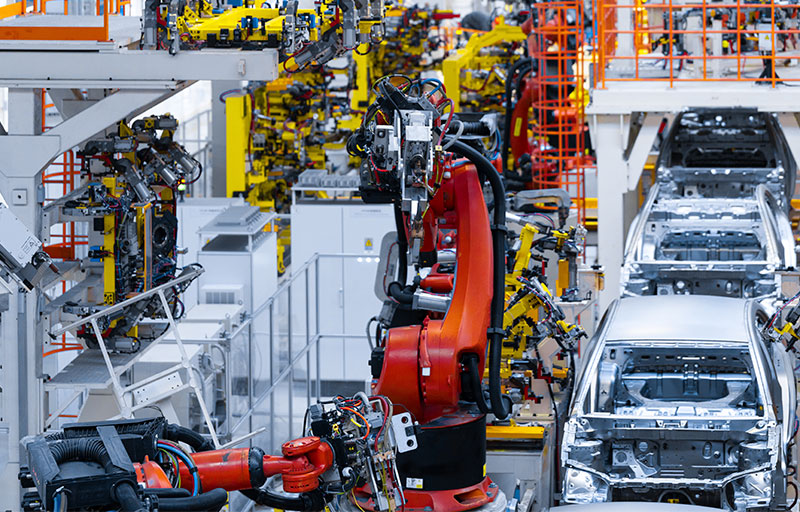
Challenges in the Automotive Industry
The automotive industry is undergoing a significant transformation driven by technological advancements, changing consumer preferences, and global economic factors. As this sector evolves, it faces numerous challenges that companies must navigate to stay competitive and innovative. Here are some of the most pressing challenges:
1. Connectivity
Modern vehicles are becoming more connected, integrating advanced infotainment systems, sensors, and communication technologies. This connectivity enhances the driving experience but also poses challenges in terms of cybersecurity, data privacy and the need for robust infrastructure to support these technologies. Automakers must invest in secure and reliable systems to protect against cyber threats and ensure seamless connectivity for their customers.
2. Electrification
The growing interest in electric vehicles (EVs) is driving automotive companies to focus on developing more efficient battery technologies and charging systems. This shift towards electrification presents challenges such as the high cost of battery production, the need for extensive charging infrastructure, and the environmental impact of battery disposal. Companies must innovate to make EVs more affordable and accessible while addressing these sustainability concerns.
3. Autonomous Vehicles
The development of autonomous vehicles (AVs) is one of the most exciting yet challenging areas in the automotive industry. Creating reliable and safe self-driving technology requires significant investment in research and development, as well as overcoming regulatory and ethical hurdles. Ensuring public trust in AV technology is crucial, and companies must work closely with regulators to establish clear guidelines and safety standards.
4. Global Competition
The automotive sector is an increasingly global industry, with manufacturers competing in markets around the world. This globalization intensifies competition, requiring companies to continually innovate and improve their products and services. Additionally, geopolitical factors, trade policies, and supply chain disruptions can impact the industry, making it essential for companies to be agile and adaptable.
5. Sustainability
Environmental concerns and regulatory pressures are pushing the automotive industry towards more sustainable practices. Companies must reduce their carbon footprint by developing fuel-efficient vehicles, investing in renewable energy sources, and adopting sustainable manufacturing processes. Meeting these sustainability goals requires significant changes in operations and a commitment to environmental stewardship.
6. Consumer Preferences
As consumer preferences evolve, automakers must adapt to meet changing demands. Today’s consumers prioritize factors such as vehicle safety, fuel efficiency, and advanced technology features. Additionally, the rise of the shared economy and alternative mobility solutions, like ride-sharing and car subscription services, are reshaping how people view vehicle ownership. Companies must stay attuned to these trends and offer products and services that align with consumer expectations.
7. Supply Chain Management
Effective supply chain management is crucial for the automotive industry, which relies on a complex network of suppliers and manufacturers. Disruptions in the supply chain, whether due to natural disasters, geopolitical tensions, or pandemics, can significantly impact production and delivery schedules. Companies need to build resilient supply chains, diversify their supplier base, and implement robust risk management strategies to mitigate these risks.
The automotive industry faces a dynamic and challenging landscape, but these challenges also present opportunities for innovation and growth. By addressing issues related to connectivity, electrification, autonomy, global competition, sustainability, consumer preferences, and supply chain management, companies can position themselves for success in this rapidly evolving sector. Staying ahead of these trends and investing in new technologies and sustainable practices will be key to navigating the future of the automotive industry.






